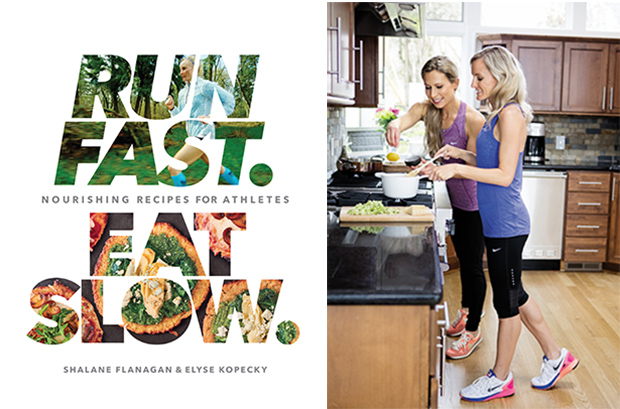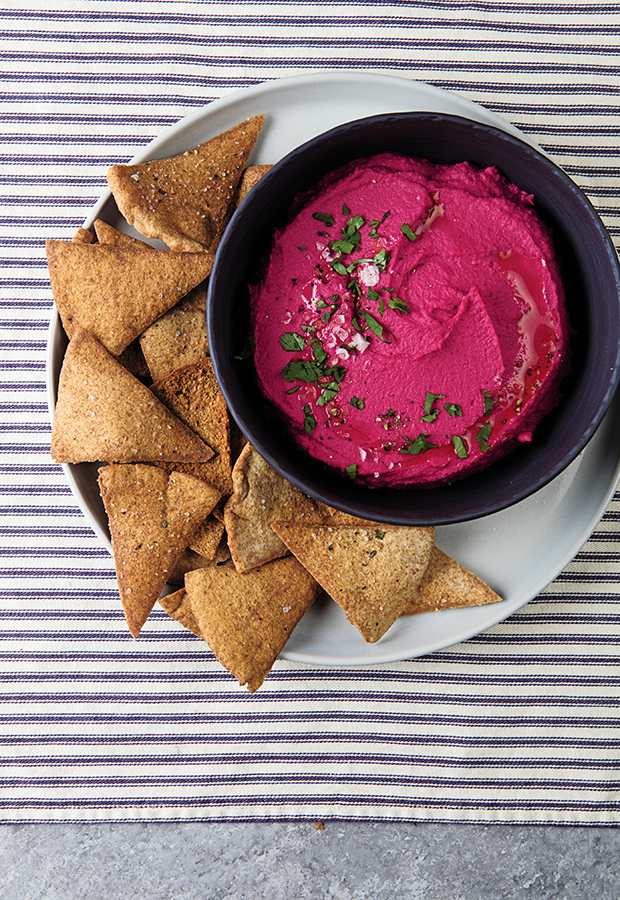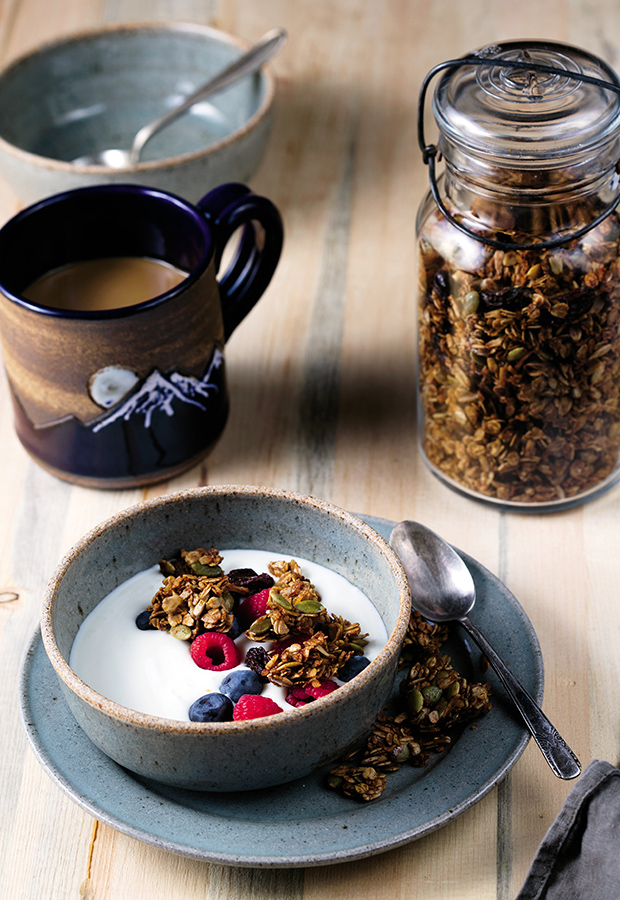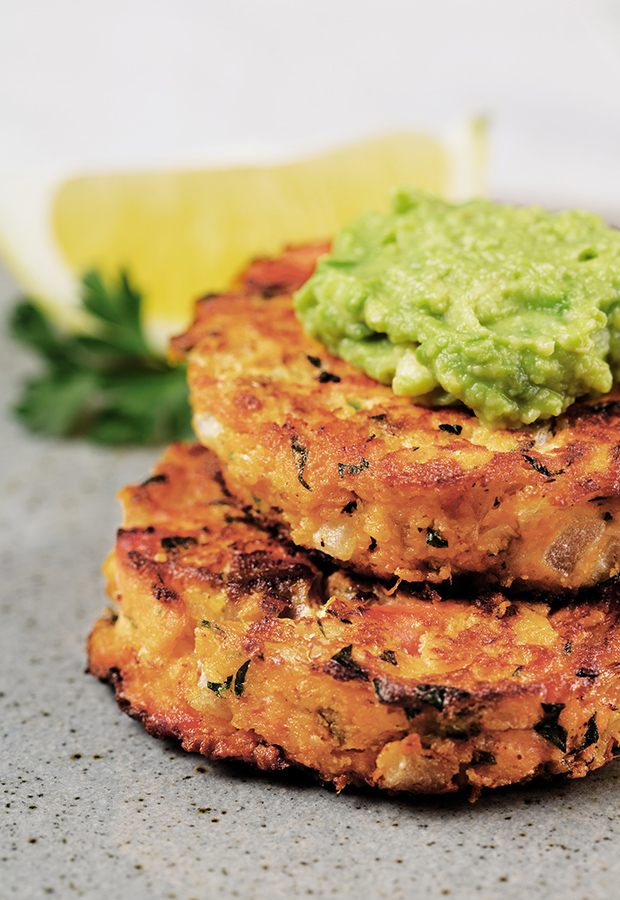
Runners are notorious for eating some of the unhealthiest foods to fuel up. A diet filled with refined bagels, sugary energy bars, pasta and cake can actually slow you down more than give you the boost you need. There’s something about burning a ridiculous number of calories while hitting pavement that gives license to go overboard with food.
But Shalane Flanagan, Olympic marathoner and natural food chef, and nutrition coach Elyse Kopecky, want to change that mindset with their newly released cookbook, Run Fast. Eat Slow: Nourishing Recipes for Athletes.
“We want to show runners that macronutrients are so important for energy and recovering. You’re not going to get the same effect with eating packaged foods, says Kopecky, who studied health-supportive culinary arts at the Natural Gourmet Institute.
RELATED: Why Runners Shouldn’t Diet (And What to Do Instead)
Full-Fat for Full Speed
“Elyse taught me that if you add the right fats, it not only tastes better, but it actually helps carry the valuable nutrients to your body.”
Kopecky and Flanagan ran cross-country together at the University of North Carolina, and this cookbook is a reflection of how much their diets have changed over the years. On the NCAA Division I team, many of their teammates relied on cereal and protein bars and Pop Tarts with peanut butter to fuel their runs.
“As soon as I started to tackle longer distances and my training demands changed, I realized my diet needed to change with it. I felt like I was constantly hungry and running on empty,” Flanagan recalls.
But after incorporating healthy fats (like real butter and coconut oil) and eating more whole-fat dairy, dark meat chicken and grass-fed beef into her, Flanagan felt stronger and was able to recover better and faster after training.
For Kopecky, changing the foods she ate helped her overcome a 15-year battle with athletic amenorrhea (the absence of menstruation). After living in Switzerland for some time, Kopecky realized the stark difference in food philosophy between Europe and the United States.
“We still fear fat here. I used to follow the standard American diet of what I thought was healthy: eating salad with fat-free dressing and white-meat chicken. Going for non-fat or low-fat milk and yogurt, instead of the full-fat variety,” Kopecky says.
RELATED: 50 Running Resources for Speed, Strength and Nutrition

No Labels Needed
Unlike other running cookbooks out there that obsess over carbs and protein, Run Fast. Eat Slow. is all about indulging in real food without counting or measuring food. If you feed your body with the right nutrients, you never have to worry about getting too much of a good thing.
“We purposely chose not to include nutrition facts for each of the recipes in the cookbook. Instead, we want people to listen to their bodies and be able to enjoy real food without worrying about counting calories or gaining weight,” Kopecky says.
“I looked at where she had opportunities to get more nourishment…”
Before Kopecky and Flanagan had written a book proposal or pitched to publishers, they created 10 sample recipes that they wanted to randomly test on people for their taste and effectiveness. “We narrowed it down to 12 people across the country at different running levels. We had Megan Scott of The Joy of Cooking test out the recipes,” Kopecky says.
In addition to having random recipe testers, Flanagan kept a food journal while training for the Berlin Marathon in 2014, which Kopecky reviewed. She offered suggestions on how Flanagan could improve her performance through her food choices.
“I looked at where she had opportunities to get more nourishment, and some of the inspiration for the dishes she made ended up being in the cookbook,” Kopecky says.
Flanagan says Kopecky taught her about how important of role nutrition plays in an athlete’s performance. While Flanagan will cut out sweets and wine during training, she eats what she normally eats and doesn’t feel deprived. She’s also got a healthy eating routine down when traveling.
“I try to plan ahead and pack a few of our homemade snacks like our Superhero Muffins, Energy Bars or Coffee-Vanilla Peanut Butter. I also scout out the healthy restaurants in advance or a good grocery store to get meals or snacks once I arrive,” Flanagan notes.
RELATED: Is Weight Loss Really As Easy As Calories In, Calories Out?
Treat Yourself, Often
But when it’s off-season for training, Flanagan doesn’t hold back on sweets. In addition to hearty breakfasts and dinners for fuel and recovery, Run Fast. Eat Slow. includes a mouthwatering bunch of desserts, including their Oregon Berry Crumble, which is made with fresh berries, rolled oats, maple syrup and vanilla ice cream.
Yes, you read that correctly: Flanagan and Kopecky are all about enjoying all the foods they love — just using higher-quality ingredients. Runners don’t need to deprive themselves of muffins, pasta, burgers or even ice cream.
“All of my treats are homemade. I like making cookies and scones. Instead of using refined sugar, I use honey, maple syrup and molasses, which won’t cause a sugar high and is a good source of iron. That’s something that many runners lack,” Kopecky says.
Flanagan and Kopecky don’t skimp on fat, either. “I find that if I use more butter and coconut oil, then I don’t have to use as much sweetener, and my treats are that much more filling,” Kopecky explains.
RELATED: A Runner’s Guide to Hydration (And How to Not Overdo It)

Healthy Foods, at the Ready
Some of their favorite recipes in the cookbook are the Recovery Quinoa Salad, which includes kale, red bell pepper, jalapenos, avocado and black beans, Greek Bison Burgers, Wild Salmon Sweet Potato Cakes, Don’t Get Beet Hummus with baked pita chips and the Can’t Beet Me Smoothie.
Flanagan and Kopecky make sure to keep their kitchens stocked, but even when they’re running low on ingredients. They have a few stand-bys that they always keep in their fridges so eating healthy is always the only option: Oats, sweet potatoes, butter, whole milk, eggs, fresh veggies and fruits, grains, garlic, beans and olive oil.
“Taste and nutrition go hand in hand. Elyse taught me that if you add the right fats, it not only tastes better, but it actually helps carry the valuable nutrients to your body,” Flanagan says.
To that end, Kopecky says that they hope their cookbook will help runners understand that healthy food doesn’t have to be bland and boring. “You can make these incredible meals and not feel weighed down. In fact, they may help you run faster.”

Run Fast. Eat Slow: The Recipes
3. Wild Salmon Sweet Potato Cakes
Run Fast. Eat Slow. is now a New York Times bestseller and is available to be purchased wherever books are sold. You can grab a copy here.
